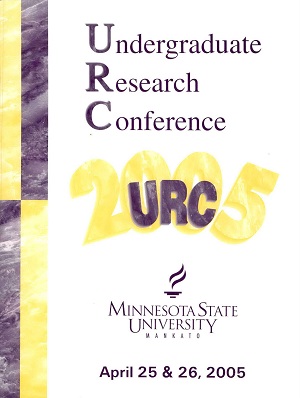Enhancing Law Enforcement Efficiency and Judgment Accuracy
Location
CSU 201
Start Date
25-4-2005 8:30 AM
End Date
25-4-2005 10:00 AM
Student's Major
Psychology
Student's College
Social and Behavioral Sciences
Mentor's Name
Kevin J. Filter
Mentor's Department
Psychology
Mentor's College
Social and Behavioral Sciences
Description
A controversial and challenging issue within law enforcement is stereotyping and profiling. Profiling stems from actual observable behavior demonstrated while stereotypes derive from internal perceptions of an individual or group. The purpose of the present study was to distinguish the use of non-racial cues versus racial cues amongst law enforcement and non-law enforcement students. Each participant in this study observed a computer image and chose which action the man in the picture was doing from a list of choices. Each of the participants filled out demographic information, and completed a survey involving race, ethnicity, and socioeconomic status. Law enforcement students completed an extra portion of answering questions relating to their field. The results of the experiment were determined by examining the relationship between law enforcement students who have received education and training in police efficiency and judgment accuracy to non-law enforcement students who have not received any proper education and training in this field. Results will be discussed in terms of implications for training law enforcement officers.
Enhancing Law Enforcement Efficiency and Judgment Accuracy
CSU 201
A controversial and challenging issue within law enforcement is stereotyping and profiling. Profiling stems from actual observable behavior demonstrated while stereotypes derive from internal perceptions of an individual or group. The purpose of the present study was to distinguish the use of non-racial cues versus racial cues amongst law enforcement and non-law enforcement students. Each participant in this study observed a computer image and chose which action the man in the picture was doing from a list of choices. Each of the participants filled out demographic information, and completed a survey involving race, ethnicity, and socioeconomic status. Law enforcement students completed an extra portion of answering questions relating to their field. The results of the experiment were determined by examining the relationship between law enforcement students who have received education and training in police efficiency and judgment accuracy to non-law enforcement students who have not received any proper education and training in this field. Results will be discussed in terms of implications for training law enforcement officers.
Recommended Citation
Mansky, Kristin. "Enhancing Law Enforcement Efficiency and Judgment Accuracy." Undergraduate Research Symposium, Mankato, MN, April 25, 2005.
https://cornerstone.lib.mnsu.edu/urs/2005/oral-session-A/2




